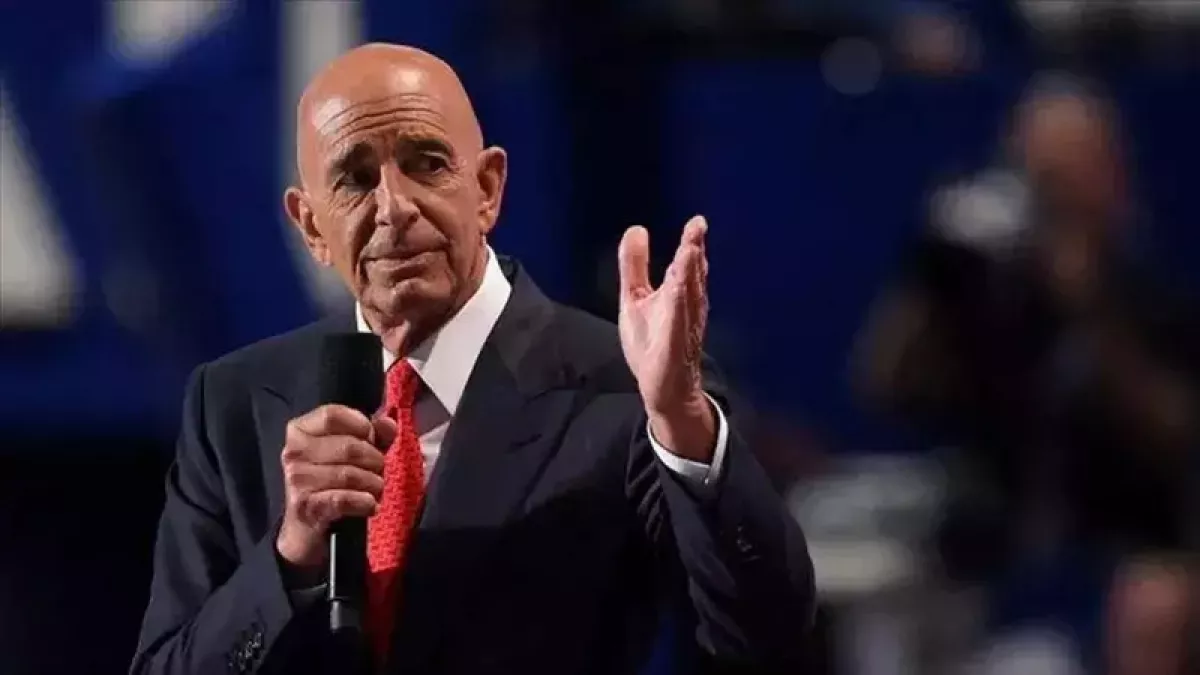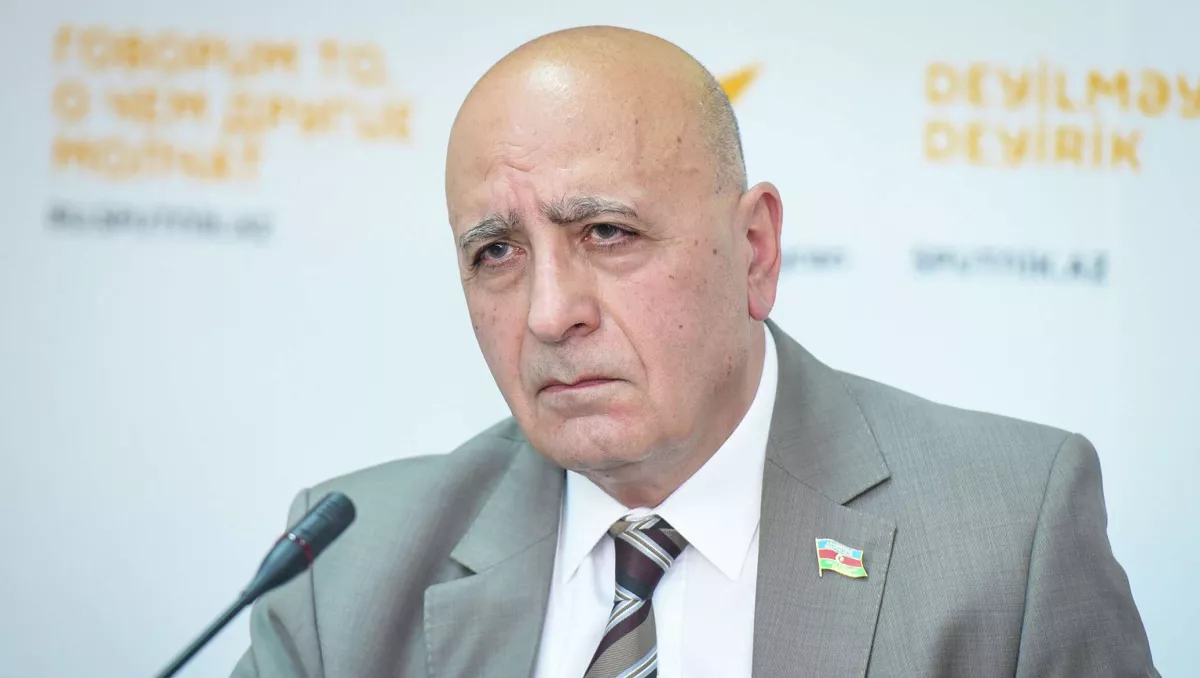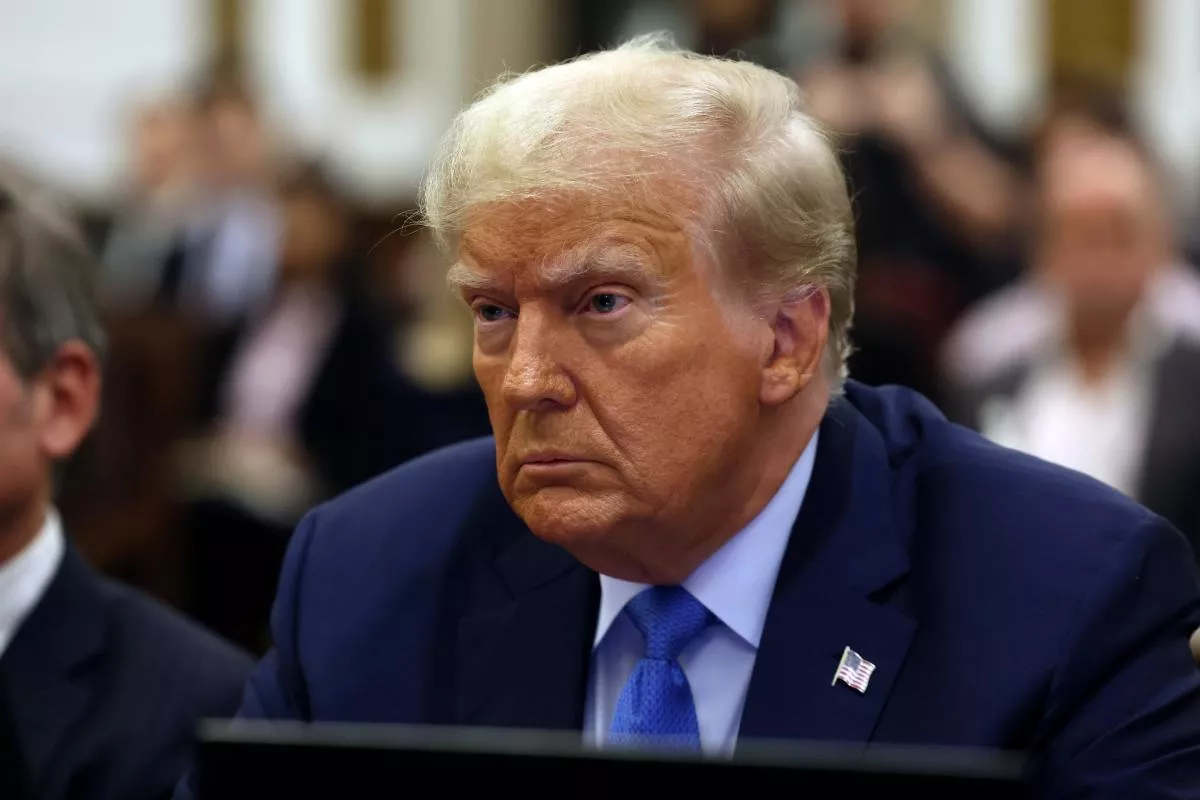US proposes 100-year lease to administer Zangezur Corridor Expert opinions on Caliber.Az
The United States has proposed taking over the administration of the 32-kilometre Zangezur Corridor under a 100-year lease agreement. According to several media outlets citing Middle East Eye, U.S. Ambassador to Türkiye Tom Barrack made the announcement to journalists in New York.

“Give us the 32 kilometers of road on a hundred-year lease, and you can all share it,” the ambassador emphasised, noting that the main goal of this proposal is to facilitate the advancement of diplomatic negotiations between Azerbaijan and Armenia.
The ambassador’s comments mark the first official confirmation that the administration of U.S. President Donald Trump has proposed managing the corridor through a private American commercial operator, which could act as a neutral guarantor.
It is quite clear that this statement caused a stir in Armenia, Russia, and other countries. Moreover, it is hard not to link it to Turkish President Recep Tayyip Erdoğan’s remarks on the strategic importance of the Zangezur Corridor, which he made in early July following his return from the ECO summit in Khankendi.
At the same time, various political figures did not miss the chance to manipulate this information — for example, the notorious First Deputy Chairman of the Russian State Duma Committee on CIS Affairs, Konstantin Zatulin. According to him, the American ambassador’s remarks suggest that “the current leadership of both Armenia and Azerbaijan have agreed to such an option,” and that “tensions were artificially escalated by both Azerbaijan and Armenia in order to bypass Moscow when it comes to the Zangezur Corridor.”
What do these new and unexpected U.S. plans for the Zangezur Corridor actually mean? Is this just a bluff, or is the United States seriously intent on advancing this project? Caliber.Az reached out to Azerbaijani and American political analysts for their insights.

According to Azerbaijani MP and political analyst Rasim Musabayov, the American idea of leasing the Zangezur Corridor is far from practical implementation, simply because, along with the 32-kilometre road, the U.S. would also have to lease the entire Armenia–Iran border.
“One must also take into account Iran’s reaction to such a possibility. In any case, an official representative of the Armenian government has stated that Armenia does not allow for anything of the sort — which is, in principle, understandable.
Overall, the idea that some U.S. commercial company is planning to operate there sounds, to put it mildly, rather odd. After all, it would not be able to ensure security and unhindered passage along the entire route. No commercial company is capable of doing that,” the political analyst emphasised.
Therefore, in Musabayov’s view, all the talk about an American company—or the United States itself—leasing Armenia’s border with Iran for a hundred years is detached from political reality. The real issue lies elsewhere: if Armenia is to ensure the security and unhindered transit through the corridor, then how exactly will it do so? Will it be able to develop mechanisms that satisfy both Azerbaijan and Türkiye? Serious negotiations should focus on this dimension.
“The second point is that the mechanisms must dispel Azerbaijan’s doubts about Armenia’s good-faith fulfilment of its obligations regarding the transit of Azerbaijani citizens and cargo. Such a mechanism does exist and is quite feasible—for example, cargo currently transits freely through Lithuania to Russia’s Kaliningrad,” the analyst noted.
What matters, in his opinion, is that no one delays or halts the trains moving through the corridor.
“The train crosses that distance in just 40 minutes. Road traffic can also be restored—it’s not that difficult. The main thing is to reach agreements on all aspects, after which Armenia must finally begin the restoration of the railway and the construction of a highway in this direction. So far, neither has happened, and there are no signs that Armenia is practically ready to start reconstruction work,” Musabayov concluded.

American analyst and expert on geopolitics and security, Irina Tsukerman—Editor-in-Chief of The Washington Outsider—believes that the renewed U.S. rhetoric regarding the resolution of the Armenian-Azerbaijani conflict and statements about possible management of the Zangezur Corridor represent a significant shift in the Trump administration’s strategic approach to the South Caucasus region.
According to her, this renewed engagement is no coincidence and reflects several interconnected political, economic, and geostrategic objectives. Moreover, the U.S. and Azerbaijan continue to maintain stable and positive relations, creating a favourable foundation for deepening cooperation—even in ambitious initiatives such as a potential 100-year lease of the corridor.
“It is important to recognise that the conflict between Armenia and Azerbaijan has moved beyond a bilateral issue and has become part of a broader architecture of trans-Eurasian infrastructure and energy projects. Washington does not view the Zangezur Corridor merely as a logistical artery, but as a strategic tool for reconnecting Central Asia, the Caspian, and the Caucasus with Turkish and, subsequently, European markets.
At a time when Russia is weakened by the war in Ukraine and China is advancing its Belt and Road Initiative via more southern routes, the United States seeks to establish itself in the region as a constructive alternative arbiter. Trump’s statement reflects an understanding that the current moment is particularly ripe for active diplomacy: Moscow is disorganised, the EU is demoralised, and Washington is once again positioning itself as the initiator of new security and logistics architectures,” she stated.

According to the political analyst, when Donald Trump speaks of U.S. “efforts” to advance Azerbaijani-Armenian negotiations, he is referring to active behind-the-scenes engagement with Türkiye, Azerbaijan, and indirectly with Iran and Armenia. These efforts include diplomatic consultations through the U.S. National Security Council, negotiations with the Turkish side on a joint monitoring framework for transport flows, and discussions on an international mechanism to legitimise the corridor — aimed at easing Armenian concerns and pre-empting potential Russian objections.
“Washington is also likely applying soft pressure on Yerevan — through intermediaries in the EU and dialogue with the Armenian diaspora, particularly in California and along the East Coast. The goal is to encourage the Armenian leadership to sign a peace agreement that eliminates territorial claims and creates conditions for the operation of the transit route,” Irina Tsukerman suggested.
As for the proposed 100-year lease of the Zangezur Corridor — in her view, this is a diplomatic formula that reflects the U.S. intention to ensure a stable, transparent, and, most importantly, neutral mechanism of governance — one that is not under Russian control.
“Washington understands that direct Azerbaijani control over this territory may be perceived in Armenia as a threat, which is why it proposes creating an external ‘shell’ — a governance structure with international participation, where the United States would act as a guarantor of freedom of transit, investment, and, if necessary, humanitarian security,” Irina Tsukerman explained. “Such a model is not about occupation or colonisation, but rather a politico-economic protectorate aimed at launching the corridor without sparking new conflict. Türkiye, as a close partner of both the U.S. and Azerbaijan, likely supports this approach.”
She stressed that the United States does not plan any physical military presence in the corridor. “It’s more about digital management, coordination of logistics flows — possibly through private contractors with international participation. This creates a perception of neutrality while ensuring maximum Western oversight without direct involvement of military forces.”
Thus, according to Tsukerman, the renewed U.S. rhetoric on the South Caucasus is not a mere reaction, but the result of systematic planning. It reflects the Trump administration’s intention to achieve a lasting peace between Baku and Yerevan while simultaneously entrenching U.S. geoeconomic influence in the region.
“For Azerbaijan, this opens up significant opportunities: international legitimisation of the Zangezur Corridor, attraction of investment, reduced risk of renewed conflict, and strategic rapprochement with Washington amid Moscow’s weakening and Brussels’ indecision,” she concluded.








